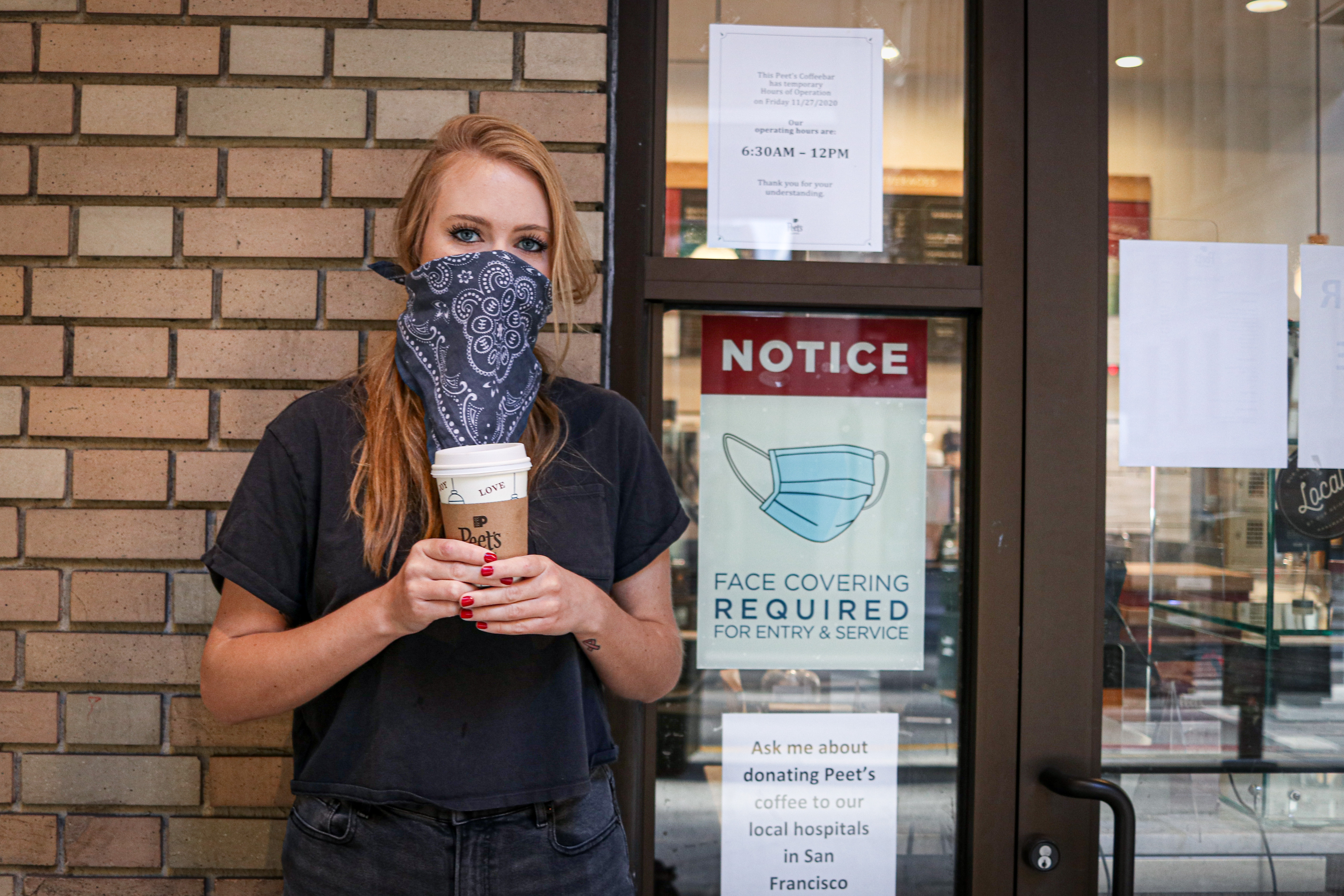
Working through uncertainty
Blue collar workers share their experiences during a pandemic
In March, the Computing Technology Industry Association ranked San Francisco first in the most tech jobs added to the workforce in the past year. As the COVID-19 pandemic allowed many of tech companies’ employees to work remotely, effectively “reshaping San Francisco,” one demographic was left to figure things out for itself – blue collar workers.
“Families are trying their best to stay in San Francisco because it's their home. They don't want to leave,” said Sara Souza, legislative aide to District 3 Supervisor Aaron Peskin, whose district includes the Financial District.According to a Chamber of Commerce report, San Francisco’s Financial District is the hardest hit part of the city.
According to data shared with the Chamber of Commerce, 293 of 344 (85%) of the area’s bars and restaurants are closed, with many unlikely to reopen. Unemployment claims are “four times higher” than the amount of claims filed in 2008 — reaching 193,000 in August.
During this time of uncertainty, we spoke with three blue collar workers to capture how they are navigating through a pandemic that has upheaved their lives and many others.


Sara Wainscott
After working as a shift lead at Peet's Coffee in the Financial District for three years, Sara Wainscott lost her job. Peet’s initially sent Wainscott and her co-workers home with two weeks of paid leave, but furloughed Wainscott in April and laid her off in August. At the time of recording, Wainscott was living on unemployment and without benefits. In late November, Peet’s rehired Wainscott to work as shift lead in a different Financial District location.
March 16: Shelter in Place
San Francisco county announces its shelter in place order on March 16, to start on March 17
March 19: Sara's Peet's Coffee location closes
March 19: Statewide Lockdown
Gov. Gavin Newsom announces statewide lockdown for California
March 27: CARES Act begins
President Donald Trump signs the Coronavirus Aid, Relief and Economic Security (CARES) Act into law, offering up to $600 in federal unemployment benefits
April 1: Sara and other Peet's Coffee employees furloughed
July 31: CARES Act begins to expire
The CARES Act $600 unemployment benefits begin to expire. At the time of publication, Congress has yet to pass another relief package
Aug. 28: Sara officially laid off
Sept. 7: Additional aid
California Employment Development Department (EDD) begins rolling out additional $300 unemployment assistance
.jpg)

Guillermo Lanza
Guillermo Lanza is a Nicaraguan immigrant who lives in the East Bay, and until March, worked as an electrician in the Financial District. Lanza lost his job after the building he worked in closed. Despite picking up jobs here and there, his weekly wages have decreased 77.5% since the Financial District shut down in March.


Marcos Cistac
Marcos Cistac works as a janitor in the city and is part of the Service Employees International Union Local 87. Although he continues to work, employers have laid off nearly half of the union’s 5,000 members, and 10 have died from COVID-19. Cistac and other members, along with Local 87 leadership, are in the middle of a contract campaign with companies such as ABM Industries and Able Services, demanding better access to PPE and safer guidelines surrounding the virus
As Local 87 pursues improved agreements in its member contract, leaders are adhering to four main negotiating points. These points are:
Wages
According to Adbo Hadwan, Local 87 organizer, companies such as ABM and Able Services last gave janitors a raise two years ago. This raise was 30 cents, something Hadwan said is “ridiculous,” given janitors’ current status as essential.
Personal Protective Equipment
“Some companies, what they do is only they count how many masks they give you, how many gloves they give you a daily in a daily basis. They didn't inform us if there is if there is a COVID case in the building, there is no proper training,” Hadwan said.
Health Insurance
“Most of the janitors, I think they have one year to do EDD, and with the union — with the insurance company that our trust fund is managing to keep them insured — [lasts] at least until the end of the year," Hadwan said. "After that, if the insurance is gone and there is no stimulus package, it's gonna be a disaster. ”
Seniority
According to Hadwan, companies such as ABM Industries and Able Services are attempting to cut costs by hiring roughly 1,000 unemployed janitors as new hires, despite their experienced backgrounds. Hadwan said that this would mean experienced workers would resume working at minimum wage if hired.